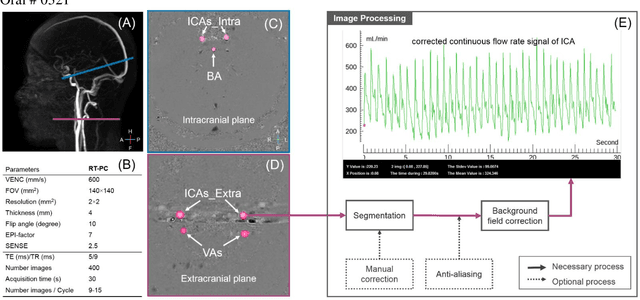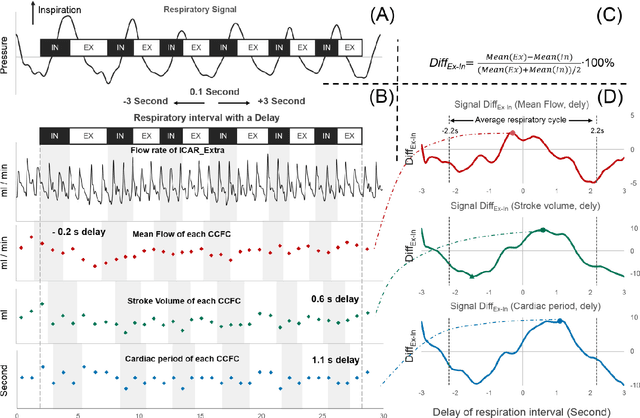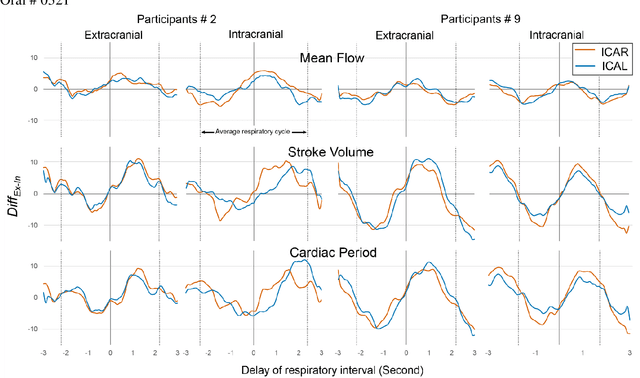Real-Time Phase Contrast MRI to quantify Cerebral arterial flow change during variations breathing
Paper and Code
Jul 26, 2022



Cerebral arterial blood flow (CABF) can be investigated in few seconds without any synchronization by Real-Time phase contrast. Significant changes in CABF were found between expiration and inspiration during normal breathing of healthy volunteers. Synopsis (100/100) Real-time phase contrast MRI has been applied to investigate cerebral arterial blood flow (CABF) during normal breathing of healthy volunteers. We developed a novel time-domain analysis method to quantify the effect of normal breathing on several parameters of CABF. We found the existence of a delay between the recorded respiratory signal from the belt sensor and the breathing frequency component present in the reconstructed arterial blood flows. During the expiratory, the mean flow rate of CABF increased by 4.4$\pm$1.7%, stroke volume of CABF increased by 9.8$\pm$3.1% and the duration of the cardiac period of CABF increased by 8.1$\pm$3%.
 Add to Chrome
Add to Chrome Add to Firefox
Add to Firefox Add to Edge
Add to Edge